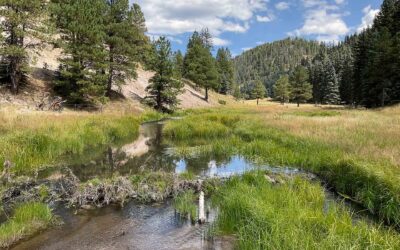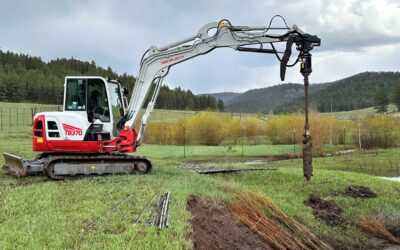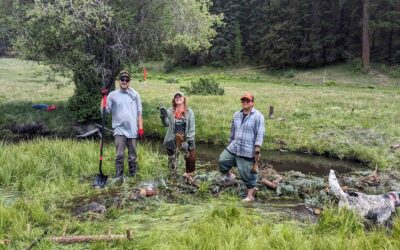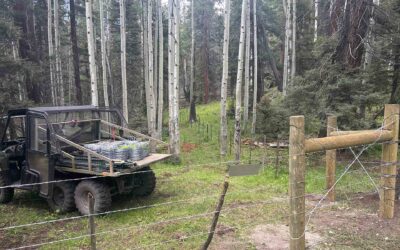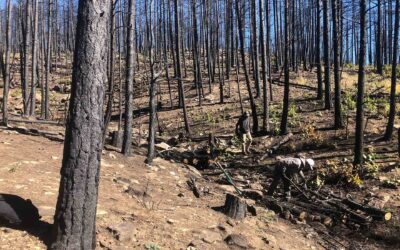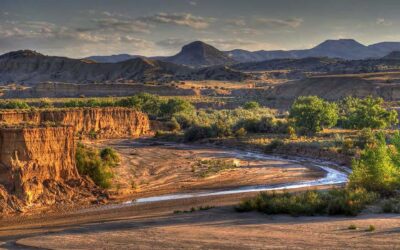Riverscape Restoration
Reconnecting Floodplains for Thriving Ecosystems
We focus on high mountain headwater streams throughout New Mexico, understanding that repairing our water systems at their source is arguably the most critically important restoration strategy currently available to address the overall health of our watersheds. Our work triggers a cascade of positive effects: water stored in floodplains flows steadily year-round, pollutants settle out in ponds, streams are shaded by willows, and wetlands spring back to life – creating resilience in the face of drought, wildfire, and flooding. Improved riverscapes benefit humans, beavers and lots of other species that depend on streams and wetlands.
While every project includes assessment, design, permitting, and monitoring, it is skilled implementation that makes the difference. Our core field crew, anchored by members of the Navajo Nation – Torreon Chapter, works year-round. We also employ a seasonal crew of college students, recent graduates and skilled laborers. Together, the crews harvest and re-plant willow and cottonwood poles, build fences to protect maturing vegetation, and construct instream structures that influence the interaction of water, sediment, wood and vegetation and add diversity and complexity to the stream. Instream structure complexes include:
- Beaver Dam Analogues (BDAs): Made from branches, cobbles, and log posts, these mimic natural beaver dams to raise water tables and spread flows.
- Post-Assisted Log Structures (PALS): Logs pinned in place to collect debris, move water, and boost habitat complexity.
- Large Woody Debris Structures (LWDS): Whole trees secured in streams, where they break down over time to form natural habitat features.
Everyone wants clean, abundant water. With these techniques, Rio Grande Return is helping riverscapes remember how to heal themselves.
Riverscape Restoration Projects
San Antonio Creek
Wetlands are expanding year by year along San Antonio Creek after installation of beaver dam analogues. Welcoming Beavers Back to the Caldera A decade ago,...
Rito Peñas Negras
A mini-excavator is used to auger holes as we plant thousands of willow poles. Mature willows and exclosure fencing in the background date from 2012.Beavers...
Rio Cebolla Restoration
Our crew building a beaver dam analogue with hand tools. Bringing Life Back to Rio Cebolla: A Stream Once Shaped by Beavers, Now on the Mend High in the Santa...
Valles Caldera National Preserve Boundary Fence
Completed corner post along Valles Caldera Boundary Fence. Protecting the Caldera, One Fencepost at a Time The 50-mile boundary fence around the Valles...
Hermit’s Peak – Calf Canyon Post-Fire
Crew members gather logs and build erosion control structures in the burn area. Capturing Sediment, Cultivating Stability The Hermit’s Peak - Calf Canyon Fire...
Rio Puerco
Early morning on Rio Puerco. Restoring Rio Puerco, Naturally Over the past 50 years, the Rio Puerco watershed has suffered severe degradation from accelerated...
Stay informed
Sign up for updates
We need your support
We all have a responsibility to repair what we've broken. Our restoration and conservation work is made possible through federal, state, and private funders like you. Your donation will help us keep the lights on while supporting our field work.
